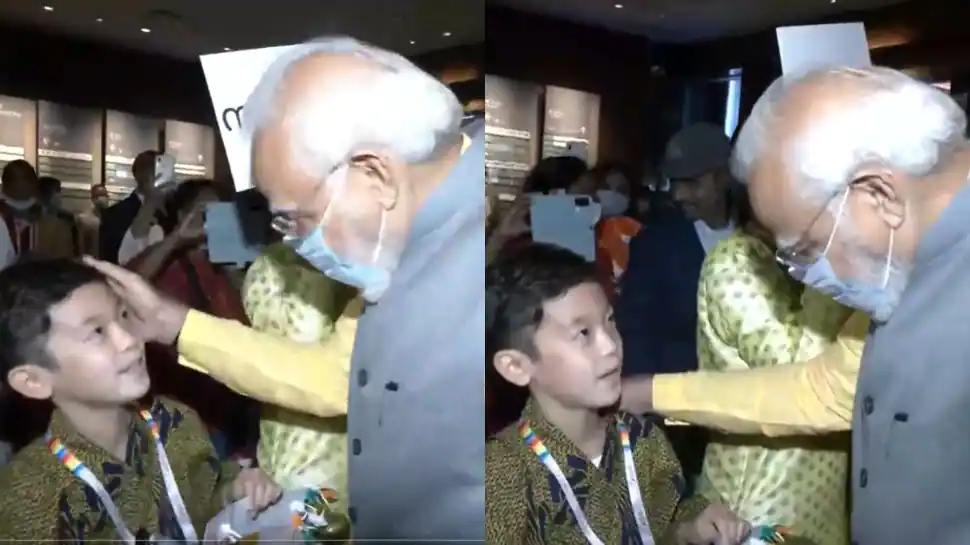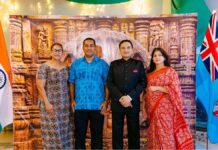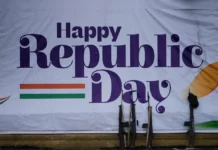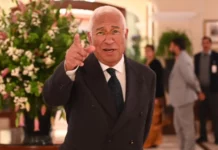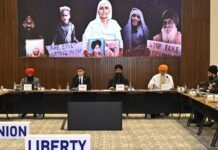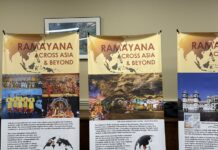TOKYO: Prime Minister Narendra Modi, who arrived in Tokyo for a two-day visit, on Monday morning interacted with children here waiting to welcome him outside the Hotel New Otani.
During the interaction, the Prime Minister was impressed to see the Hindi fluency of a kid, Ritsuki Kobayashi, who was waiting for an autograph from him. “Waah! Where did you learn Hindi from?… You know it pretty well?” PM Modi told him.
Ritsuki Kobayashi said that he is very happy and said, “He (PM Modi) read my message, which I wrote on paper and this is the reason that I am very happy and even I got his signature.”
A woman who present there to welcome the Prime Minister said, “We are super happy to welcome PM Modi to Japan. His energy is infectious…He has made us proud everywhere.” Prime Minister Narendra Modi, who is on a two-day visit to Tokyo, received a rousing welcome on Monday from the Indian diaspora at the Hotel New Otani where he will be staying during his trip.
Har Har Modi”, “Modi Modi”, “Vande Mataram” and “Bharat Mata ki Jai” slogans reverberated at the hotel as people from the Indian diaspora cheered and waved their flags seeing the Prime Minister.
Earlier this morning, Prime Minister Narendra Modi arrived in Tokyo to participate in the Quad summit on May 24 at the invitation of Japanese Prime Minister Fumio Kishida.
After landing in Tokyo, the Prime Minister tweeted, “Landed in Tokyo. Will be taking part in various programmes during this visit including the Quad Summit, meeting fellow Quad leaders, interacting with Japanese business leaders and the vibrant Indian diaspora.”
Ahead of his visit to Japan, PM Modi on Sunday said that during the Quad summit, leaders will once again have the opportunity to discuss various initiatives and issues of mutual interest.
The Summit in Tokyo is the fourth interaction of Quad Leaders since their first virtual meeting in March 2021, in-person Summit in Washington D.C. in September 2021 and virtual meeting in March 2022.
The leaders will review the progress of Quad initiatives and Working Groups, identify new areas of cooperation and provide strategic guidance and vision for future collaboration. (ANI)

